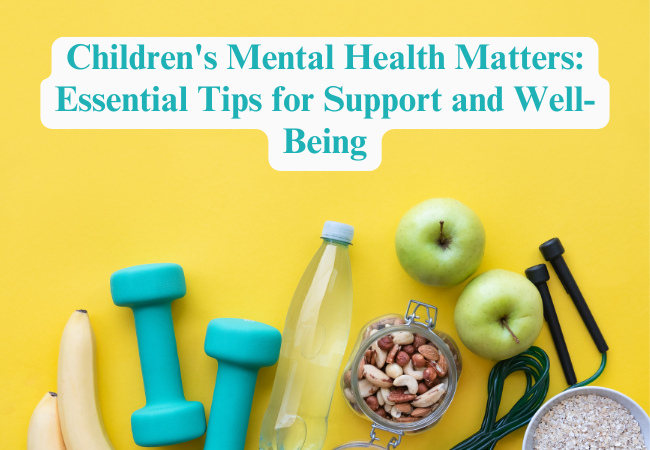Fostering Social Skills Development in Children : Tips and Strategies for Parents
Unlock the secrets to enhancing social skills in children with our expert tips and strategies. Learn how to support your child’s ability to communicate, collaborate, and build meaningful relationships from an early age.
As parents, we all want our children to grow up happy, confident, and able to form strong relationships with others. Social skills are crucial for success in school, work, and personal life. But how can we help our children develop these important skills? This guide will explore the importance of social skills and provide practical tips for parents to support their children’s social development.
Why Are Social Skills Important?

Before we dive into strategies, let’s understand why social skills are so crucial:
- Better relationships: Good social skills help children form and maintain friendships.
- Academic success: Children with strong social skills often perform better in school.
- Emotional well-being: Social skills contribute to better self-esteem and emotional regulation.
- Future success: These skills are vital for success in the workplace and adult relationships.
Learn more about the importance of social skills from the American Academy of Pediatrics
Key Social Skills for Children
Here are some essential social skills children need to develop:
- Communication: Both verbal and non-verbal
- Empathy: Understanding and sharing the feelings of others
- Cooperation: Working well with others
- Conflict resolution: Solving disagreements peacefully
- Self-control: Managing emotions and behavior
- Listening: Paying attention to what others say
- Sharing: Willingness to share toys and take turns
- Respect: Treating others with kindness and consideration
Now, let’s explore strategies to help foster these skills in children of different age groups.
Strategies for Toddlers and Preschoolers (Ages 2-5)
- Encourage Pretend Play Pretend play helps children practice social scenarios and develop empathy.
Tip: Set up a pretend restaurant or doctor’s office at home. Take turns playing different roles.
- Teach Sharing and Turn-Taking These are fundamental skills for getting along with others.
Tip: Use a timer during playtime to help children understand turn-taking.
- Model Good Social Skills Children learn by watching their parents and caregivers.
Tip: Demonstrate polite behavior, active listening, and conflict resolution in your daily life.
- Arrange Playdates Supervised playdates provide opportunities to practice social skills.
Tip: Start with short playdates and gradually increase the duration as children become more comfortable.
- Read Books About Emotions and Friendships Stories can help children understand different social situations and emotions.
Tip: After reading, discuss the characters’ feelings and actions with your child.
Discover more tips for fostering social skills in preschoolers
Strategies for School-Age Children (Ages 6-12)
- Encourage Participation in Group Activities Team sports, clubs, or group projects can help children learn cooperation and communication.
Tip: Let your child choose activities they’re interested in to boost confidence.
- Teach Problem-Solving Skills Help children learn to resolve conflicts on their own.
Tip: When conflicts arise, guide your child through the problem-solving process instead of solving it for them.
- Practice Active Listening Good listening skills are crucial for building relationships.
Tip: Play listening games like “Simon Says” or practice summarizing what others have said.
- Discuss Social Situations Talk about social scenarios your child might encounter and brainstorm appropriate responses.
Tip: Use TV shows or books as conversation starters about social situations.
- Promote Empathy Help children understand and care about others’ feelings.
Tip: Encourage your child to consider how their actions might affect others.
- Teach Good Sportsmanship Learning to win and lose gracefully is an important social skill.
Tip: Model good sportsmanship in family games and discuss examples in sports events.
Read more about social skill development in school-age children
Strategies for Teenagers (Ages 13-18)
- Encourage Face-to-Face Communication In the digital age, it’s important to practice in-person communication skills.
Tip: Set device-free times for family meals or outings.
- Teach Assertiveness Help teens learn to express their needs and opinions respectfully.
Tip: Role-play different scenarios where assertiveness might be needed.
- Discuss Online Etiquette Social media is a big part of teens’ social lives. Teach them how to interact respectfully online.
Tip: Talk about the potential consequences of online posts and comments.
- Promote Volunteering Community service can help develop empathy and social responsibility.
Tip: Help your teen find volunteer opportunities aligned with their interests.
- Support Healthy Relationships Discuss the characteristics of healthy friendships and romantic relationships.
Tip: Be open to conversations about relationships and provide guidance when asked.
- Encourage Self-Reflection Help teens understand their own emotions and behaviors.
Tip: Encourage journaling or regular check-ins about social experiences.
Learn more about supporting social skills in teenagers
General Tips for All Ages
- Create a Safe Environment Children need to feel safe and supported to practice social skills.
- Praise Effort Acknowledge your child’s efforts to be social, not just the outcomes.
- Be Patient Social skills develop over time. Every child progresses at their own pace.
- Address Social Anxiety If your child shows signs of social anxiety, seek professional help if needed.
- Limit Screen Time While some digital interactions can be beneficial, balance them with in-person social experiences.
- Practice What You Preach Remember, you’re your child’s most important role model for social behavior.
When to Seek Professional Help
While it’s normal for children to face social challenges, some may need extra support. Consider seeking professional help if your child:
- Consistently struggles to make or keep friends
- Shows signs of severe anxiety in social situations
- Has difficulty understanding social cues
- Exhibits aggressive or highly disruptive behavior
Read more about when to seek help for social skills development
Conclusion
Developing strong social skills is a lifelong process, but the foundations are laid in childhood. By providing opportunities for social interaction, modeling good social behavior, and offering gentle guidance, parents can play a crucial role in fostering their children’s social development. Remember, every child is unique, and progress may happen at different rates. The most important thing is to create a supportive environment where your child feels safe to practice and develop these essential life skills.
Do you have any experiences or tips about fostering social skills in children? We’d love to hear from you in the comments below!
For more information and guide, visit usaparentingtips.com






